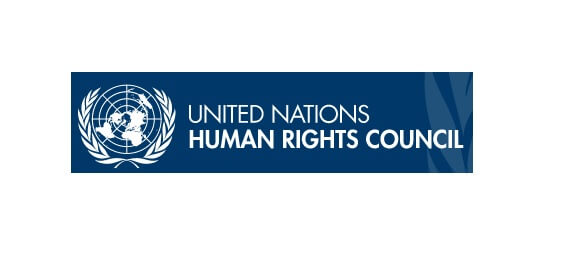The United Nations’ Human Rights Council HRC in Geneva opened the work of the forty-third regular session, starting on Monday, February 24, 2020, with number of topics of concern to the human rights situation in about fifty countries.
During this session, which will continue until March 20, the HRC will hold more than 25 interactive discussions in this regard. We mention that the Kingdom of Bahrain is one of the countries that the council will address during the session.
The Council is scheduled to organize four thematic discussion sessions, the first of which was held in the form of a round table for the implementation of the Convention on the Rights of the Child that was celebrated for the thirtieth anniversary of its adoption in 2019, while a high-level panel discussion yesterday focused on the Beijing Declaration and Plan of Action, which they grew out of the International Conference on Women in 1995.
In his speech at the opening of the annual session of the Human Rights Council, United Nations’ Secretary-General António Guterres called for action against what he described as "increasing human rights abuses around the world," highlighting the persecution of minorities and the murders of women. Guterres said in his speech: "The rights of human beings are exposed to transgressions, and no country is immune to this trend”, adding that “fears are increasing” and “human rights are being violated from all sides”, calling on the international community to “move to reverse this path”.
Guterres expressed his concern about “the decline of women's rights and the alarming levels of women’s murders, as well as about abuse women rights defenders and the continuation of laws and policies that perpetuate subordination and exclusion", pointing out that violence against women and girls is the greatest violation prevalent.
He also clarified that repressive laws proliferate with the emergence of increasing restrictions on freedoms of expression, belief, participation, assembly, and association, saying that: "journalists, human rights defenders and activists, especially women, are exposed to increasing threats while their commitment is indispensable in the context of achieving justice”.
The Secretary-General of the United Nations stated that the new technology provided a better organization for civil society, but at the same time it gave the authorities unprecedented means to control the movements of individuals to restrict their freedoms, adding that "the climate crisis is the greatest threat to the survival of the human race and actually puts human rights at risk in all over the world".
On the occasion of the 43rd session of the United Nations Human Rights Council, the Bahrain Center for Human Rights would like to take the opportunity to raise concerns about the failure of the Kingdom of Bahrain and its refusal to undertake reforms proposed by countries at the third cycle of the Universal Periodic Review (UPR) in 2017. On the contrary, the vast majority of the recommendations made by other countries have not been fulfilled, even as the government takes some steps in this regard.
After Bahrain underwent its third cycle of the UPR in May 2017, during the review, member states and observer states in the United Nations Human Rights Council made 175 recommendations, and these recommendations were compiled in 20 areas of issues, including the most important human rights from the right to freedom of expression to treatment of prisoners. Due to the depth and breadth of the recommendations, if implemented, they would have led to broad reforms in the political, judicial and penal systems in Bahrain, but while the government endorsed 139 recommendations and provided comments on only 36 recommendations, it refused to implement the recommendations, taking only few serious steps to changing their policies or laws.
Therefore, and based on the foregoing, and believing in the active role played by the Human Rights Council, the Bahrain Center for Human Rights calls for paying wider attention to the implementation of the recommendations, as it is not sufficient to instruct them without monitoring their implementation. BCHR renews the call to pressure the Bahraini authorities in order to solve the current issues, especially with regard to the prisoners and their conditions in the recent periods.

